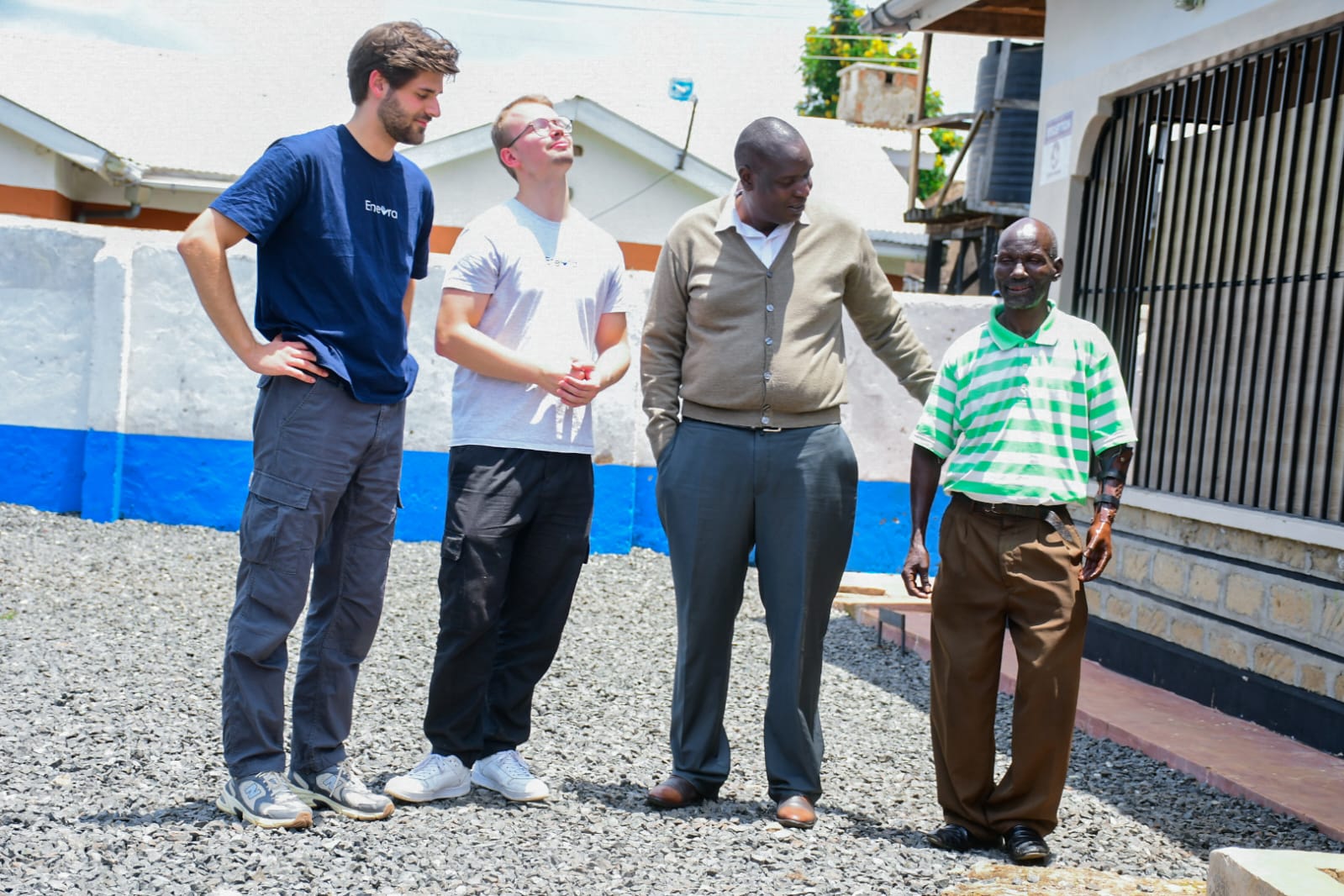A German engineering firm, Enevra, has launched an innovative 3D prosthetics programme in Kenya, poised to transform orthopaedic rehabilitation and support for persons with disabilities (PWDs).
In partnership with the Joseph Waswa Foundation, Enevra unveiled state-of-the-art 3D-printed prosthetic limbs during an event held in Webuye.
The programme introduces advanced 3D printing technology that enables local production of affordable, durable, and precisely fitted prosthetic limbs.
This innovation significantly reduces reliance on costly imports while enhancing comfort and durability for users.
The rollout included an intensive five-day training for orthopaedic technicians from public hospitals and rehabilitation centres, conducted in collaboration with orthopaedic consultant Dr. Alex Juma, who also serves as an associate partner in the project.
The first beneficiary to receive a 3D-printed prosthetic forearm was Joseph Lokwale, a hawker in Webuye town.
Lokwale expressed deep gratitude to the team, saying, “I’m grateful for this chance at life. With this hand, I can now work better and live with dignity.”
Bungoma County Director of Social Development, Eliud Ondari, praised the initiative as a vital lifeline for PWDs and pledged county support to ensure the technology reaches grassroots communities.
“This project is not just about equipment; it is about inclusion. For many PWDs who have been sidelined due to high costs, this programme opens a door of opportunity and empowerment,” Ondari stated.
Representatives from Enevra, Linus Wasser and Sebastian Weshamp described the 3D printing technology as a “game changer” for expanding access to prosthetics.
“This is not just technology transfer, it is about restoring hope, independence and confidence,” they said.
 Joseph Lokwale (far right), a hawker in Webuye town, becomes the first beneficiary of the Joseph Waswa Foundation’s 3D prosthetics programme after being fitted with a 3D-printed forearm/HANDOUT
Joseph Lokwale (far right), a hawker in Webuye town, becomes the first beneficiary of the Joseph Waswa Foundation’s 3D prosthetics programme after being fitted with a 3D-printed forearm/HANDOUT
Joseph Waswa Foundation Programmes Director, Isaac Wanjekeche, highlighted the significance of the milestone, noting, “This technology is about restoring dignity and transforming lives. Our goal is to reach at least 3,000 PWDs within the first phase, ensuring that no one is left behind because of financial barriers.”
The Webuye hub will serve as a regional production and rehabilitation centre, greatly reducing costs and waiting times associated with imported prosthetic devices.
More beneficiaries are scheduled to receive fittings in the coming weeks, marking what experts describe as the beginning of a new era in accessible disability support across Kenya.









.jpeg)

-1.png)


